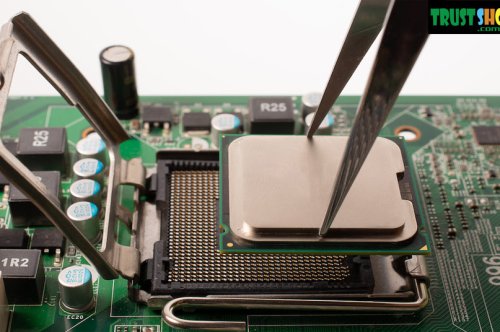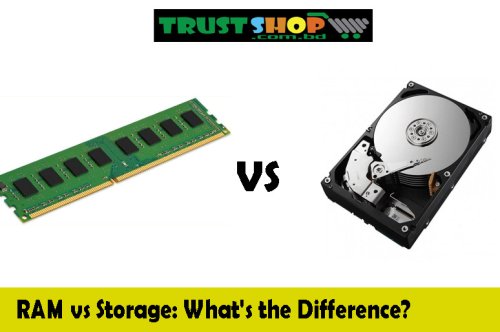Does cctv camera work without electricity

In today's technology-driven world, closed-circuit television (CCTV) cameras have become a common sight, serving as invaluable tools for surveillance and security in various settings. However, one question often arises when contemplating their functionality: Can CCTV cameras work without electricity? The answer to this query lies in understanding the intricacies of these devices and the power requirements they rely on. In this article, we will explore the inner workings of CCTV cameras, their dependence on electrical power, and alternative solutions that enable surveillance even in the absence of a consistent electricity supply. By delving into this topic, we hope to shed light on the possibilities and limitations of CCTV cameras in different scenarios.
How Do They Work?
Closed-circuit television (CCTV) cameras are widely used for surveillance and security purposes in various settings. However, their functionality relies heavily on a stable supply of electricity. Let's explore how CCTV cameras work and understand the role of electricity in their operation.
CCTV cameras are electronic devices equipped with essential components that work together to capture and transmit video footage. The core component is the image sensor, which can be a charge-coupled device (CCD) or a complementary metal-oxide-semiconductor (CMOS) sensor. The image sensor captures light and converts it into electrical signals, forming the basis of the camera's video output.
The lens of a CCTV camera focuses the incoming light onto the image sensor, determining the field of view and level of detail captured. The captured electrical signals are then processed and amplified by the camera's internal circuitry, which converts them into a video signal.
To transmit the video signal, CCTV cameras are connected to a centralized recording system or monitoring station through coaxial cables or network cables. These cables also serve as the means for providing electrical power to the cameras.
Unfortunately, CCTV cameras cannot function without a consistent and reliable power supply. They rely on electricity to power the image sensor, internal circuitry, video transmission, and other critical components. In the event of a power outage or disruption, traditional CCTV cameras connected to the electrical grid would cease to operate.
However, advancements in technology have introduced alternative solutions to address this limitation. Backup power sources, such as Uninterruptible Power Supplies (UPS) or batteries, can provide temporary power to CCTV camera systems during power outages. These devices ensure uninterrupted operation until the primary power source is restored.
In addition, solar-powered CCTV cameras have emerged as a sustainable option. These cameras incorporate solar panels that convert sunlight into electrical energy, which is stored in batteries. Solar-powered CCTV systems offer flexibility and can operate even in areas with limited or no access to electricity.
Can CCTV cameras work without electricity?
CCTV cameras cannot work without electricity. They rely on a stable power supply to operate their essential components, including the image sensor, internal circuitry, and video transmission system. In the event of a power outage or disruption, traditional CCTV cameras connected to the electrical grid would cease to function. However, alternative solutions such as backup power sources like Uninterruptible Power Supplies (UPS) or solar-powered systems have been developed to provide temporary or sustainable power, enabling CCTV cameras to operate even during power outages or in areas with limited access to electricity.
Plug-In Security Cameras
Plug-In security cameras, also known as wired or hardwired cameras, are a popular choice for surveillance and home security systems. These cameras require a direct power connection to operate effectively. They typically come with a power cord that needs to be plugged into an electrical outlet or a power source within the premises.
Plug-In security cameras offer a reliable and consistent power supply, ensuring continuous operation without the need to worry about battery life or recharging. This makes them suitable for long-term monitoring and areas where a consistent power source is available.
The advantage of plug-in security cameras is their simplicity and ease of installation. They can be easily set up by connecting the power cord to an outlet and configuring the camera settings. Additionally, plug-in cameras often provide higher resolution and advanced features such as motion detection, night vision, and remote access for live viewing.
However, it is important to consider the location of electrical outlets and the availability of power sources when installing plug-in security cameras. Proper cable management may be required to ensure a tidy installation and to prevent any interference or accidental disconnection of the power cord.
Wireless Security Cameras
Wireless security cameras have gained popularity in recent years as a convenient and flexible option for surveillance systems. Unlike traditional wired cameras, wireless cameras transmit video and audio signals without the need for physical cables. Instead, they utilize wireless technology, such as Wi-Fi or Bluetooth, to connect to the local network or directly to a compatible device.
Wireless security cameras offer several advantages, including easy installation and versatility. They can be placed in various locations without the limitations of wiring, providing flexibility in terms of camera placement and coverage. Wireless cameras are also ideal for renters or temporary setups as they can be easily moved or repositioned.
Additionally, wireless cameras often come with advanced features such as motion detection, remote access for live viewing, and cloud storage options for recorded footage. Some models even have battery-powered options, further enhancing their portability and flexibility.
However, it's important to note that wireless security cameras rely on a stable Wi-Fi or network connection for proper functioning. Factors like signal strength, interference, and distance from the router can affect the camera's performance and video quality. It's crucial to ensure a strong and secure network setup for optimal performance.
Backup Feature
Not all security cameras include a battery backup option. Therefore, a security camera's operation in circumstances of a power loss will be a major issue.
What therefore can we do to remedy this problem? Every problem that arises in any area of life may always be resolved. Meaning. This problem can be resolved.
DIY Solar Powered Security Cameras
DIY solar-powered security cameras have emerged as a sustainable and cost-effective option for surveillance in areas with limited or no access to electricity. These cameras utilize solar panels to harness sunlight and convert it into electrical energy, which is stored in batteries for later use.
The advantage of DIY solar-powered security cameras is their ability to operate independently, making them suitable for remote locations or off-grid setups. They offer flexibility in camera placement and eliminate the need for running electrical wiring.
These cameras often come with features such as motion detection, night vision, and remote access for live viewing. However, it's important to consider the solar panel's placement to ensure optimal sunlight exposure for charging the batteries. Additionally, weather conditions and seasonal variations can affect the camera's performance, requiring occasional maintenance and adjustments.
DIY solar-powered security cameras offer a sustainable and reliable surveillance solution, combining the benefits of solar energy and modern camera technology. They provide peace of mind while reducing reliance on traditional power sources.
Conclusion
In conclusion, CCTV cameras do not work without electricity. They heavily rely on a consistent power supply to operate their essential components, including the image sensor, internal circuitry, and video transmission system. While alternative solutions such as backup power sources and solar-powered systems have been developed to address power disruptions, a reliable electrical connection remains vital for the proper functionality of CCTV cameras. Ensuring a stable power supply is crucial for maintaining the continuous operation and effectiveness of these surveillance devices.










